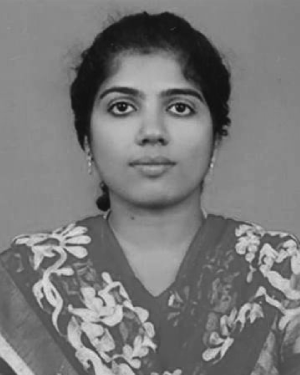Proposed Malware Detection Model.
Abstract:
Malware is a rapidly increasing menace to modern computing. Malware authors continually incorporate various sophisticated features like code obfuscations to create malwar...Show MoreMetadata
Abstract:
Malware is a rapidly increasing menace to modern computing. Malware authors continually incorporate various sophisticated features like code obfuscations to create malware variants and elude detection by existing malware detection systems. The classification of unseen malware variants with similar characteristics into their respective families is a significant challenge, even if the classifier is trained with known variants belonging to the same family. The identification and extraction of distinct features for each malware is another issue for generalizing the malware detection system. Features that contribute to the generalization capability of the classifier are difficult to be engineered with modifications in each malware. Conventional malware detection systems employ static signature-based methods and dynamic behavior-based methods, which are inefficient in analyzing and detecting advanced and zero-day malware. To address these issues, this work employs a visualization approach where malware is represented as 2D images and proposes a robust machine learning-based anti-malware solution. The proposed system is based on a layered ensemble approach that mimics the key characteristics of deep learning techniques but performs better than the latter. The proposed system does not require hyperparameter tuning or backpropagation and works with reduced model complexity. The proposed model outperformed other state-of-the-art techniques with a detection rate of 98.65%, 97.2%, and 97.43% for Malimg, BIG 2015, and MaleVis malware datasets, respectively. The results demonstrate that the proposed solution is effective in identifying new and advanced malware due to its diverse features.
Proposed Malware Detection Model.
Published in: IEEE Access ( Volume: 8)
Funding Agency:

School of Computer Science and Engineering, Vellore Institute of Technology, Chennai Campus, Chennai, India
S. Abijah Roseline received the B.E. degree in computer science and engineering from the Vel’s Srinivasa College of Engineering and Technology (Affiliated to Anna University), Chennai, India, in 2008, and the M.E. degree in computer science and engineering from the MNM Jain Engineering College (Affiliated to Anna University), Chennai, in 2011. She is currently pursuing the Ph.D. degree with the School of Computer Science ...Show More
S. Abijah Roseline received the B.E. degree in computer science and engineering from the Vel’s Srinivasa College of Engineering and Technology (Affiliated to Anna University), Chennai, India, in 2008, and the M.E. degree in computer science and engineering from the MNM Jain Engineering College (Affiliated to Anna University), Chennai, in 2011. She is currently pursuing the Ph.D. degree with the School of Computer Science ...View more

School of Computer Science and Engineering, Vellore Institute of Technology, Chennai Campus, Chennai, India
S. Geetha (Senior Member, IEEE) received the B.E. degree in computer science and engineering from Madurai Kamaraj University, India, in 2000, and the M.E. degree in computer science and engineering and the Ph.D. degree from Anna University, Chennai, India, in 2004 and 2011, respectively. She has more than 18 years of rich teaching and research experience. She is currently a Professor and the Associate Dean with the School...Show More
S. Geetha (Senior Member, IEEE) received the B.E. degree in computer science and engineering from Madurai Kamaraj University, India, in 2000, and the M.E. degree in computer science and engineering and the Ph.D. degree from Anna University, Chennai, India, in 2004 and 2011, respectively. She has more than 18 years of rich teaching and research experience. She is currently a Professor and the Associate Dean with the School...View more

Department of Mathematics and Computer Science, Faculty of Science, Beirut Arab University, Beirut, Lebanon
Seifedine Kadry (Senior Member, IEEE) received the bachelor’s degree from Lebanese University, in 1999, the M.S. degree from Reims University, France, in 2002, and the EPFL, Lausanne, the Ph.D. degree from Blaise Pascal University, France, in 2007, and the HDR degree from Rouen University, in 2017. His current research interests include data science, education using technology, system prognostics, stochastic systems, and ...Show More
Seifedine Kadry (Senior Member, IEEE) received the bachelor’s degree from Lebanese University, in 1999, the M.S. degree from Reims University, France, in 2002, and the EPFL, Lausanne, the Ph.D. degree from Blaise Pascal University, France, in 2007, and the HDR degree from Rouen University, in 2017. His current research interests include data science, education using technology, system prognostics, stochastic systems, and ...View more

Department of Computer Science and Engineering, Soonchunhyang University, Asan, South Korea
Yunyoung Nam (Member, IEEE) received the B.S., M.S., and Ph.D. degrees in computer engineering from Ajou University, South Korea in 2001, 2003, and 2007, respectively. He was a Senior Researcher with the Center of Excellence in Ubiquitous System, Stony Brook University, Stony Brook, NY, USA, from 2007 to 2010, where he was a Postdoctoral Researcher, from 2009 to 2013. He was a Research Professor with Ajou University, from...Show More
Yunyoung Nam (Member, IEEE) received the B.S., M.S., and Ph.D. degrees in computer engineering from Ajou University, South Korea in 2001, 2003, and 2007, respectively. He was a Senior Researcher with the Center of Excellence in Ubiquitous System, Stony Brook University, Stony Brook, NY, USA, from 2007 to 2010, where he was a Postdoctoral Researcher, from 2009 to 2013. He was a Research Professor with Ajou University, from...View more

School of Computer Science and Engineering, Vellore Institute of Technology, Chennai Campus, Chennai, India
S. Abijah Roseline received the B.E. degree in computer science and engineering from the Vel’s Srinivasa College of Engineering and Technology (Affiliated to Anna University), Chennai, India, in 2008, and the M.E. degree in computer science and engineering from the MNM Jain Engineering College (Affiliated to Anna University), Chennai, in 2011. She is currently pursuing the Ph.D. degree with the School of Computer Science and Engineering, Vellore Institute of Technology, Chennai Campus, Chennai. She has published papers in reputed international conferences. Her research interests include cybersecurity, computer vision, and machine learning.
S. Abijah Roseline received the B.E. degree in computer science and engineering from the Vel’s Srinivasa College of Engineering and Technology (Affiliated to Anna University), Chennai, India, in 2008, and the M.E. degree in computer science and engineering from the MNM Jain Engineering College (Affiliated to Anna University), Chennai, in 2011. She is currently pursuing the Ph.D. degree with the School of Computer Science and Engineering, Vellore Institute of Technology, Chennai Campus, Chennai. She has published papers in reputed international conferences. Her research interests include cybersecurity, computer vision, and machine learning.View more

School of Computer Science and Engineering, Vellore Institute of Technology, Chennai Campus, Chennai, India
S. Geetha (Senior Member, IEEE) received the B.E. degree in computer science and engineering from Madurai Kamaraj University, India, in 2000, and the M.E. degree in computer science and engineering and the Ph.D. degree from Anna University, Chennai, India, in 2004 and 2011, respectively. She has more than 18 years of rich teaching and research experience. She is currently a Professor and the Associate Dean with the School of Computer Science and Engineering, Vellore Institute of Technology, Chennai Campus, India. She has published more than 80 papers in reputed international conferences and refereed journals. Her research interests include steganography, steganalysis, multimedia security, intrusion detection systems, machine learning paradigms, and information forensics. She joins the Review Committee and the Editorial Advisory Board of journals, such as IEEE Transactions on Information Forensics and Security and IEEE Transactions on Image Processing, Multimedia Tools and Security (Springer), and Information Sciences (Elsevier). She has published four books. She has given many expert lectures, keynote addresses at international, and national conferences. She has organized many workshops, conferences, and FDPs. She was a recipient of the University Rank and Academic Topper Award from her B.E. and M.E. degrees, in 2000 and 2004, respectively. She was also the proud recipient of the ASDF Best Academic Researcher Award 2013, the ASDF Best Professor Award 2014, the Research Award in 2016, and the High Performer.
S. Geetha (Senior Member, IEEE) received the B.E. degree in computer science and engineering from Madurai Kamaraj University, India, in 2000, and the M.E. degree in computer science and engineering and the Ph.D. degree from Anna University, Chennai, India, in 2004 and 2011, respectively. She has more than 18 years of rich teaching and research experience. She is currently a Professor and the Associate Dean with the School of Computer Science and Engineering, Vellore Institute of Technology, Chennai Campus, India. She has published more than 80 papers in reputed international conferences and refereed journals. Her research interests include steganography, steganalysis, multimedia security, intrusion detection systems, machine learning paradigms, and information forensics. She joins the Review Committee and the Editorial Advisory Board of journals, such as IEEE Transactions on Information Forensics and Security and IEEE Transactions on Image Processing, Multimedia Tools and Security (Springer), and Information Sciences (Elsevier). She has published four books. She has given many expert lectures, keynote addresses at international, and national conferences. She has organized many workshops, conferences, and FDPs. She was a recipient of the University Rank and Academic Topper Award from her B.E. and M.E. degrees, in 2000 and 2004, respectively. She was also the proud recipient of the ASDF Best Academic Researcher Award 2013, the ASDF Best Professor Award 2014, the Research Award in 2016, and the High Performer.View more

Department of Mathematics and Computer Science, Faculty of Science, Beirut Arab University, Beirut, Lebanon
Seifedine Kadry (Senior Member, IEEE) received the bachelor’s degree from Lebanese University, in 1999, the M.S. degree from Reims University, France, in 2002, and the EPFL, Lausanne, the Ph.D. degree from Blaise Pascal University, France, in 2007, and the HDR degree from Rouen University, in 2017. His current research interests include data science, education using technology, system prognostics, stochastic systems, and probability and reliability analysis. He is an ABET Program Evaluator of computing and an ABET Program Evaluator of Engineering Tech.
Seifedine Kadry (Senior Member, IEEE) received the bachelor’s degree from Lebanese University, in 1999, the M.S. degree from Reims University, France, in 2002, and the EPFL, Lausanne, the Ph.D. degree from Blaise Pascal University, France, in 2007, and the HDR degree from Rouen University, in 2017. His current research interests include data science, education using technology, system prognostics, stochastic systems, and probability and reliability analysis. He is an ABET Program Evaluator of computing and an ABET Program Evaluator of Engineering Tech.View more

Department of Computer Science and Engineering, Soonchunhyang University, Asan, South Korea
Yunyoung Nam (Member, IEEE) received the B.S., M.S., and Ph.D. degrees in computer engineering from Ajou University, South Korea in 2001, 2003, and 2007, respectively. He was a Senior Researcher with the Center of Excellence in Ubiquitous System, Stony Brook University, Stony Brook, NY, USA, from 2007 to 2010, where he was a Postdoctoral Researcher, from 2009 to 2013. He was a Research Professor with Ajou University, from 2010 to 2011. He was a Postdoctoral Fellow with the Worcester Polytechnic Institute, Worcester, MA, USA, from 2013 to 2014. He was the Director of the ICT Convergence Rehabilitation Engineering Research Center, Soonchunhyang University, from 2017 to 2020. He has been the Director of the ICT Convergence Research Center, Soonchunhyang University, since 2020, where he is currently an Assistant Professor with the Department of Computer Science and Engineering. His research interests include multimedia database, ubiquitous computing, image processing, pattern recognition, context-awareness, conflict resolution, wearable computing, intelligent video surveillance, cloud computing, biomedical signal processing, rehabilitation, and healthcare systems.
Yunyoung Nam (Member, IEEE) received the B.S., M.S., and Ph.D. degrees in computer engineering from Ajou University, South Korea in 2001, 2003, and 2007, respectively. He was a Senior Researcher with the Center of Excellence in Ubiquitous System, Stony Brook University, Stony Brook, NY, USA, from 2007 to 2010, where he was a Postdoctoral Researcher, from 2009 to 2013. He was a Research Professor with Ajou University, from 2010 to 2011. He was a Postdoctoral Fellow with the Worcester Polytechnic Institute, Worcester, MA, USA, from 2013 to 2014. He was the Director of the ICT Convergence Rehabilitation Engineering Research Center, Soonchunhyang University, from 2017 to 2020. He has been the Director of the ICT Convergence Research Center, Soonchunhyang University, since 2020, where he is currently an Assistant Professor with the Department of Computer Science and Engineering. His research interests include multimedia database, ubiquitous computing, image processing, pattern recognition, context-awareness, conflict resolution, wearable computing, intelligent video surveillance, cloud computing, biomedical signal processing, rehabilitation, and healthcare systems.View more

